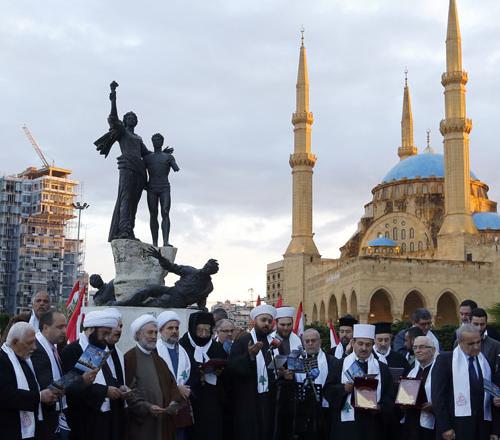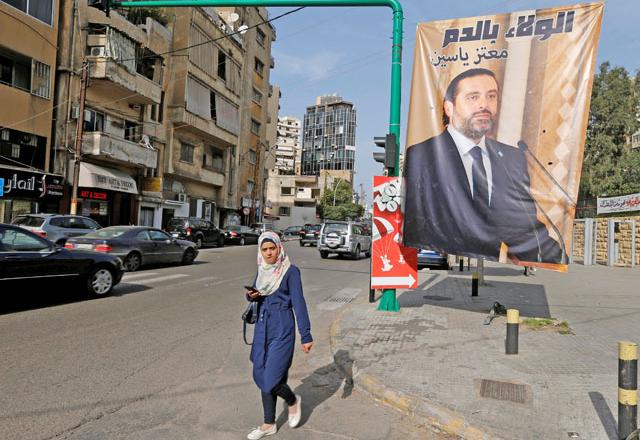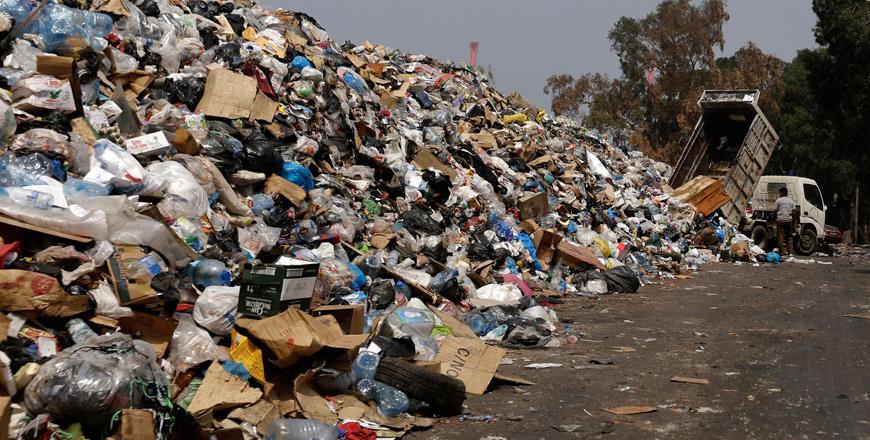You are here
‘Never again,’ Lebanon says on civil war 40th anniversary
By AFP - Apr 13,2015 - Last updated at Apr 13,2015

BEIRUT — Several Lebanese leaders on Monday warned that the lessons of the country's civil war should not be forgotten, 40 years after the 15-year conflict began.
Monday marks the 40th anniversary of the April 13, 1975 conflict, in which 150,000 people were killed before a peace deal was reached in 1990.
The war ravaged the country and left 17,000 people missing, but an amnesty law allowed many of its key protagonists to subsequently become leading political figures.
Among them is Druze leader Walid Jumblatt, who acknowledged on Monday that his opinion on the conflict could not be considered "fair or objective".
"I was one of the factions driven by fanaticism and hatred," he wrote on his official Twitter account.
"My advice to [my son] Taymur and every Lebanese youth is to beware of violence and ignorance," he said.
Justice Minister Ashraf Rifi tweeted that the anniversary was a reminder of the war's "lesson to all Lebanese to protect their country and nation and reject violence and death".
Other leaders, including former prime minister Saad Hariri, whose father was a leading post-war premier who was assassinated in 2005, warned Lebanese citizens to ensure the conflict would not be repeated.
"Never again, we will never allow it to return," Hariri said in a statement, warning that Lebanon should be protected from "the furnace of Arab wars".
"We cannot protect Lebanon if we do not stop surrounding fires from reaching it, or worse, if we keep throwing ourselves into their flames," he said.
His father Rafiq Hariri led the reconstruction of Lebanon after the civil war and was killed in a massive bomb attack.
Hariri's killing is just one example of the violence that has continued to shake Lebanon in its post-war period, contributing to ongoing fragility.
In Beirut on Monday, former militiamen from the war joined with peace activists to launch the "Fighters for Peace" group, which said it would aim to prevent Lebanon from sliding into another war.
"There is no future without forgiveness and without uncovering the whole truth," said Assaad Chaftari, a former intelligence official with the Lebanese Forces militia during the war.
"If we don't do that, we will be setting up future wars for our children," he said.
Since the beginning of the conflict in neighbouring Syria, sectarian divides in Lebanon have been aggravated.
Many of Lebanon's Sunnis back the uprising against President Bashar Assad, while Lebanese Shiites, including the powerful Hizbollah movement, support the ruling regime in Damascus.
Lebanon's political class remains divided and stagnant, with stalemate in parliament meaning the post of president has been empty since May, when Michel Sleiman's mandate ended.
Related Articles
BEIRUT — Lebanese President Michel Aoun, who has refused to accept Saad Hariri's resignation as prime minister unless Hariri returns from Sa
BEIRUT — The overpowering stench of the rubbish piling up in Lebanon's streets has become a potent symbol of the political rot protesters bl
Lebanese paid their respects Saturday to the late former prime minister Rafiq Hariri, a decade after his assassination in a massive and shocking suicide bombing that destabilised the fragile country.













